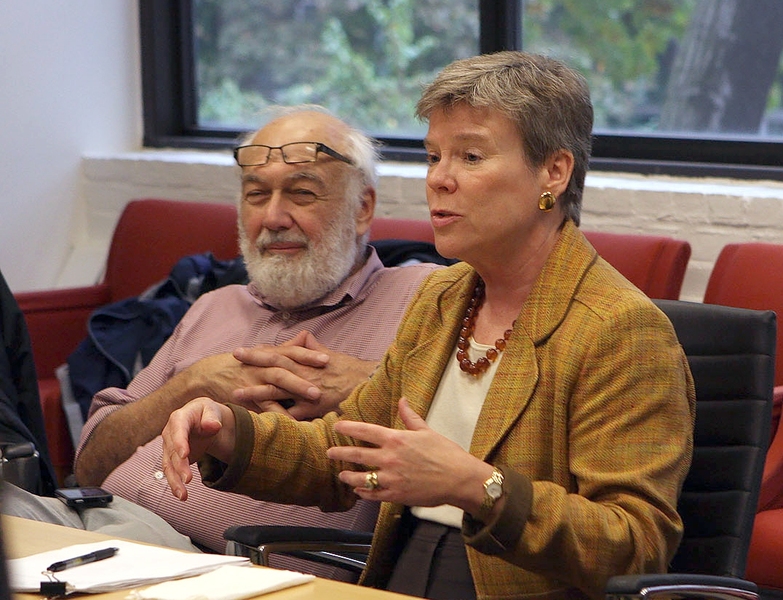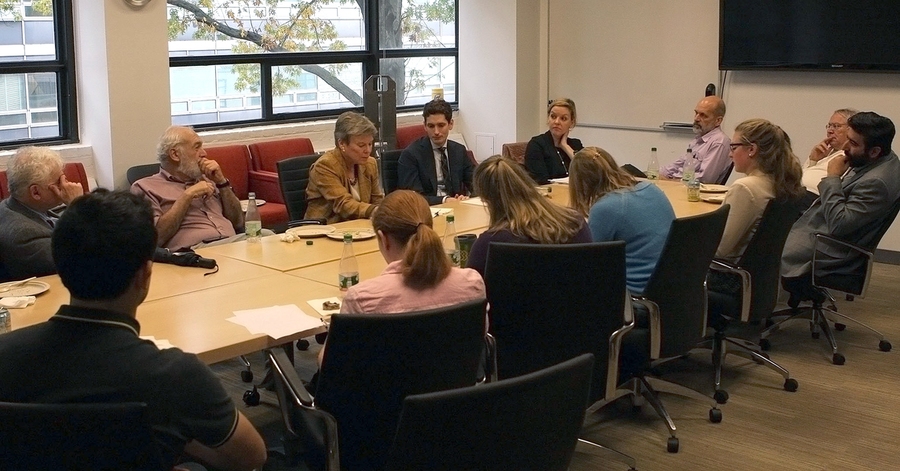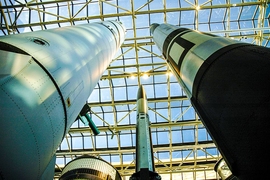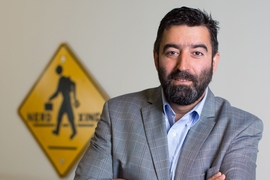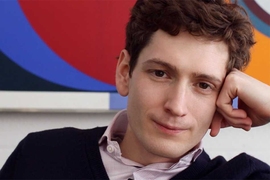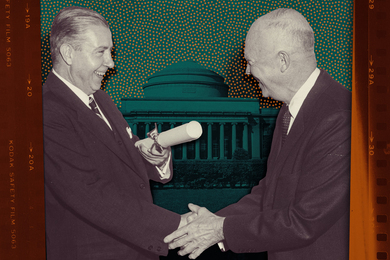The Department of Nuclear Science and Engineering (NSE) welcomed the Honorable Rose Gottemoeller, U.S. under secretary of state for arms control and international security, for a roundtable lunch discussion with students and faculty last Friday. The discussion focused on the application of new technologies in arms control, and the role that NSE can play.
Gottemoeller was the chief negotiator for the most recent U.S.-Russian arms-reduction agreement called “New Start,” which reduced deployed nuclear warheads to 1,550 per side. One important challenge limiting further reductions in future agreements is the lack of a verification technology able to protect secret warhead information. NSE professors Scott Kemp and Areg Danagoulian lead a research project to develop those tools. When asked to what extent the lack of a verification approach was holding back further diplomatic efforts, Gottemoeller said that while it is not the immediate problem, as the United States first needs a “willing dance partner” in Russia, verification was the next problem on the list. She expressed concern that, as in the past, the technology might not be ready when the political opportunity suddenly arose, but she added that she “gets the feeling that we could be ready” after talking with researchers at NSE.
Gottemoeller also spoke on how personal technology could improve inspection regimes, calling this the future of arms control. First, inspectors need better tools that go beyond current limitations to pen, paper, and a ruler. Second, she hopes that ubiquitous sensing on mobile platforms could provide unprecedented sensor grids or opportunistic detection of nuclear material. Finally, she added that real-time process monitoring for nuclear materials, rather than simple material accounting, will become ever more important. These ideas received considerable discussion, as well as the idea of using open-source information with data fusion to infer potential treaty violations. Gottemoeller agreed with a view that open-source data is not given sufficient attention by policymakers.
The under secretary also discussed the Comprehensive Test Ban Treaty, which the United States signed in 1996 but which has not been ratified by Congress. She argued that the treaty offers the United States a clear national security benefit by preventing other countries from developing more advanced weapons while locking in the U.S. advantage in this area, and that past concerns about undetectable cheating have been overcome by technology. Gottemoeller discussed her strategy for building support for the treaty’s ratification starting with the public. By speaking on the issue at universities, and focusing on regions with populations most affected by nuclear weapon testing, she hopes to build grassroots support on what should be a strong bipartisan issue. Gottemoeller, who said she has been “accused of being the great optimist,” found a similarly optimistic group at the roundtable discussion Friday, and the resulting discussions gave reason to believe that the optimism is well founded.
The lunch discussion was followed by a public talk on the “Future Prospects for U.S.-Russia Arms Control,” jointly organized by Scott Kemp of NSE and Subrata Ghoshroy of the Program in Science, Technology, and Society.
